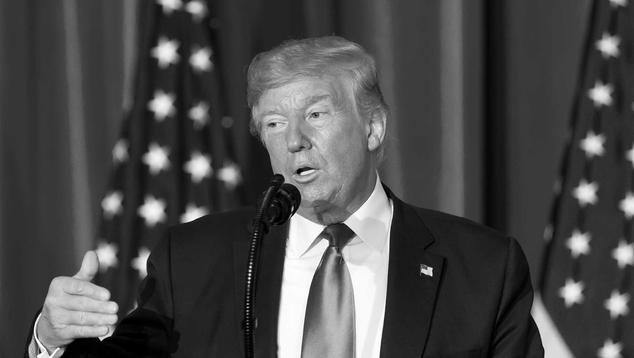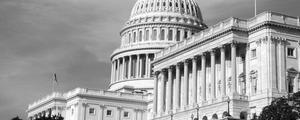The Business Roundtable recently released a "Statement on the Purpose of a Corporation," outlining revisions in that group's feelings about appropriate corporate objectives. The new statement includes not only the traditional goal of increasing stockholder value, but also delivering value to customers, investing in employees, dealing fairly and ethically with suppliers, and supporting the communities in which corporations work.
One advantage of stockholder value as a corporate objective is the simplicity of having a single quantitative criterion. The new Business Roundtable objectives layer in much greater complexity. How does a CEO measure and combine customers' perceptions of value, employee satisfaction and engagement, supplier satisfaction, and community perceptions of the corporation? (And, of course, there can be serious debate as to whether there should be still other objectives, as Gallup CEO Jim Clifton has recently discussed.)
The president of the United States -- in essence, the CEO of the country -- faces what is in many ways the same complex challenge that business CEOs face. What are the president's primary objectives and, most importantly, how can a president measure how well he (or she) is doing in meeting those objectives?
From my unique perspective as a longtime pollster, what comes to mind first when I think about a measure of a president's performance in office is the classic presidential job approval rating. Because a president is elected through the vote of the people, their view of how well he is doing once in office takes on unusual importance. No surprise, then, that job approval has become the most commonly reported public opinion question in polling's 80+ year history.
Job Approval's Positive Virtue Lies in Its Simplicity
One complaint about the job approval rating is that it is too simplistic. As we see from discussion of the new Business Roundtable statement, any leader has a number of purposes in their role, and, consequently, a number of different ways in which their performance can be measured. For the president, in theory, performance can be measured by ratings given to him by other elected leaders, members of his party, international leaders, business leaders and so forth. The president's performance can also be evaluated by non-attitudinal measures, most notably economic statistics such as GDP, unemployment, creation of new jobs, and inflation, as well as the nation's involvement in wars, international peace, measures of the population's wellbeing and health, relative prosperity across diverse groups, environmental health, and others.
I suppose one could create a scorecard of the five most important purposes of the president, similar to the Roundtable's recent efforts, and attempt to quantify his performance in each of these domains. But in reality, thousands of aspects of American life are affected by a president's actions, and thousands of identifiable groups of people he affects have opinions about his performance -- making it very difficult to develop such a composite scorecard.
When we use the job approval rating as a measure of a president's performance, we deputize the people of the United States as our data summarizers, asking them to take into account all aspects of the president's performance and to summarize it with one response. Americans are serving as journalists, juries and judges, and the job approval rating -- like a jury's verdict -- puts it together in one place.
Presidents' Arm's Length Relationship With Job Approval
I've been involved in with Gallup's job approval rating for about 30 years and I've seen a number of differing approaches to presidents' public reactions to the measure. (For some more detailed history, I recommend Robert Eisinger's book The Evolution of Presidential Polling.)
Most presidents, in my experience, are loath to admit publicly that they use polls as a gauge of their performance in office, most likely because they hold on to the heroic view that they are courageously doing what is right for the country, even if the people of the country don't know what is right for themselves. This approach is exemplified by George W. Bush, who said: "I really don't care what polls and focus groups say. What I care about is doing what I think is right." (This can be translated into, "I really don't care what the people of the country say. What I care about is doing what I think is right.")
Of course, like all other presidents, Bush administration officials and advisers, the record shows, spent millions on polling, and no doubt Bush was aware of what that was showing. Regardless of their public pronouncements, it's fair to say that, as was the fictional case for President Bartlet in Aaron Sorkin's The West Wing television series, all presidents in reality pay at least some attention to their job approval rating.
Trump Pays Close Attention
President Donald Trump pays more public attention to his job approval rating than any recent president in my experience. Unlike Bush, Trump generally doesn't discount the overall importance of job approval ratings. In fact, Trump's frequent references to the measure legitimize its importance in his estimation, even as he often criticizes specific polls.
Trump has employed three basic approaches to job approval ratings. First, he supports and quotes job approval measures when they are to his liking, underscoring his basic acceptance of the measure as a valid indicator of his performance. Second, he often claims his approval rating would be 20 or 30 points higher if not for various impediments, including the Fed and the "fake news media." This too legitimizes the underlying concept of using the approval rating as a measure of performance. Third, he dismisses specific approval ratings he doesn't like, calling them "fake" or "suppression polls," alleging that various pollsters are deliberately attempting to make his approval too low. This doesn't mean Trump is dismissing job approval ratings per se, just certain specific polling results that don't fit his self-conception.
A valuable attribute of the job approval measure comes from the historical context it provides -- going back to the days of World War II. Trump's job approval rating in Gallup's latest survey is 39%. We can say that Trump's current 39% is well below the historical average of 53% across all presidents since Harry Truman, and is below where Dwight Eisenhower, John F. Kennedy, Richard Nixon, Ronald Reagan, George H.W. Bush, Bill Clinton and George W. Bush were in September of their third year in office after first being elected. Trump's rating is higher than Jimmy Carter's 30% to 33% ratings in September of his third year in office (1979), and just slightly below Barack Obama's 40% to 43% weekly averages in September of his third year (2011).
The job approval rating also provides us the ability to analyze views of the president's performance among subgroups of the population. Right now, Trump's approval across party groups is amazingly polarized -- ranging from 88% among Republicans to 3% among Democrats. Women are 10 percentage points lower than men in their evaluation of the job he is doing, and young people are 20 points lower than those 65 and older. And, despite Trump's recent claims that "We have tremendous African American support. I would say I'm at my all-time high," the data show that his job approval rating among blacks is 7%, the lowest of any subgroup we measure except for Democrats.
Trump's job approval rating has stayed within a relatively narrow range since he has been president, underscoring the way in which political polarization freezes approval in place. Those who identify with each of the major parties today have highly disparate views, as we have seen -- views that are basically fixed in place.
Overall, I'm sure each president develops a list of objectives for his administration and either formally or informally attempts to see how well he is doing in reaching them. But the way the people of the nation summarize the performance of their president through the job approval rating is a durable, valid and reliable single measure of presidential success in reaching objectives, and one that has stood the test of time.




